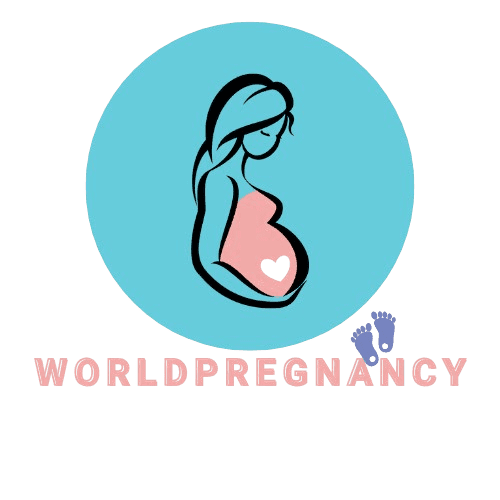Pregnancy is a transformative experience for women around the world, and American women are no exception. In the U.S., pregnancy is shaped by diverse cultural, medical, and lifestyle factors that reflect modern healthcare, family dynamics, and personal choices. This blog explores key aspects of pregnancy for American women, backed by expert advice to ensure a healthy and fulfilling journey to motherhood.

1. Healthcare and Prenatal Care in the U.S.
The American healthcare system offers a variety of prenatal care options, from obstetricians to midwives, and even birthing centers for those seeking alternative approaches. Dr. Sarah Thompson, an OB-GYN based in New York, emphasizes the importance of early prenatal care:
“The first prenatal visit is essential because it establishes the foundation for the entire pregnancy. We assess the mother’s overall health, provide nutritional guidance, and check for any potential risks.”
In the U.S., it’s common for pregnant women to receive routine check-ups, ultrasounds, and screenings. These visits help monitor both the baby’s development and the mother’s health. The Centers for Disease Control and Prevention (CDC) recommends that women attend at least 12-14 prenatal appointments throughout pregnancy to ensure the best outcomes for both mother and baby.
2. Nutrition and Lifestyle Adjustments
Maintaining a healthy diet is crucial for pregnant women, and American women are increasingly adopting personalized meal plans to support their pregnancy. Dr. Thompson advises that pregnant women should focus on whole grains, lean proteins, fruits, and vegetables. She also stresses the importance of prenatal vitamins, especially folic acid, which reduces the risk of neural tube defects in babies.
“Avoiding raw seafood, unpasteurized products, and high-mercury fish is crucial for pregnant women in America, as these foods can carry risks,” says Dr. Thompson.
Staying active is also encouraged. Many American women engage in prenatal yoga, swimming, or walking as part of a healthy lifestyle. Exercise helps improve circulation, reduce stress, and prepare the body for labor.
3. Challenges and Healthcare Disparities
Despite advancements in healthcare, some American women face challenges in accessing prenatal care, particularly those from low-income or minority communities. Studies have shown that Black and Hispanic women in the U.S. are more likely to experience complications during pregnancy due to healthcare disparities. According to the CDC, Black women are three to four times more likely to die from pregnancy-related causes than white women, a troubling statistic that highlights the need for improved access to care and healthcare reform.
4. Mental Health During Pregnancy
Mental health is a growing concern for pregnant women in the U.S. Many women experience heightened anxiety, stress, or depression during pregnancy, influenced by factors like work, relationships, or societal pressures. Dr. Lisa Baker, a psychologist specializing in maternal mental health, emphasizes the need for emotional well-being:
“Pregnancy can be an overwhelming time, especially for first-time mothers. It’s important to prioritize mental health by seeking support from family, friends, or professionals. Therapy or counseling during pregnancy can be incredibly beneficial for managing stress.”
American women are also becoming more open about postpartum mental health, with increased awareness of conditions like postpartum depression (PPD). Dr. Baker recommends that women openly discuss any emotional changes with their healthcare providers during and after pregnancy.
5. Birth Preferences and Trends
In recent years, many American women have taken a more active role in shaping their birth experiences. Some prefer the traditional hospital setting with epidurals and medical interventions, while others are opting for natural births, home births, or water births with midwives. Dr. Thompson encourages women to create birth plans that reflect their personal preferences but reminds them to remain flexible:
“A birth plan is a great tool for communication between a mother and her healthcare team, but the health and safety of the mother and baby should always come first. Sometimes, unplanned interventions are necessary.”
There’s also been a rise in doula support for emotional and physical assistance during labor. Doulas provide continuous care, offering comfort techniques like massage or breathing exercises.
6. Postpartum Care and Recovery
The postpartum period is just as important as pregnancy, but it’s often overlooked. In the U.S., many women only have one postpartum checkup around six weeks after delivery, which may not be sufficient for addressing physical and mental health needs. Dr. Thompson stresses that postpartum care should include ongoing support for breastfeeding, mental health, and physical recovery.
Many American women are advocating for extended paid maternity leave, as the U.S. lags behind other developed countries in offering sufficient time off for new mothers. While federal law provides 12 weeks of unpaid leave under the Family and Medical Leave Act (FMLA), this can be a financial burden for many families, making postpartum recovery more stressful.
Conclusion
Pregnancy is a unique and deeply personal experience for American women. With access to modern healthcare, personalized nutrition and fitness plans, and evolving attitudes toward childbirth, women in the U.S. are empowered to make informed decisions about their pregnancies. However, challenges such as healthcare disparities and limited postpartum care need continued attention.
Dr. Sarah Thompson advises that the key to a successful pregnancy is to stay informed, communicate openly with healthcare providers, and seek support from both family and professionals. By prioritizing both physical and mental health, American women can navigate pregnancy with confidence and grace.
References:
- Dr. Sarah Thompson, OB-GYN, New York Medical Center
- Centers for Disease Control and Prevention (CDC)

hi